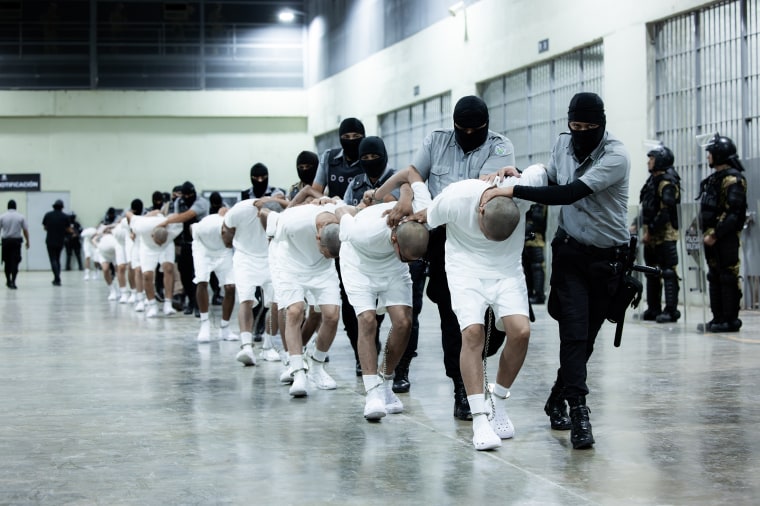Recent Deportations Raise Questions About Due Process
In a controversial move, the U.S. government has recently transferred 238 Venezuelan migrants to a high-security prison in El Salvador, citing national security concerns. This unprecedented action has sparked outrage and concern over potential violations of human rights and due process. The deportees are alleged to be members of criminal gangs, but investigations reveal that a significant number do not appear to have any criminal records.
The Background of the Deportations
Three weeks ago, the Trump administration made use of a wartime law, the Alien Enemies Act, to facilitate the removal of these migrants, who were branded as violent gang members and terrorists. The current administration stated that they had conducted thorough investigations into the backgrounds of these individuals, identifying them as threats to U.S. security. However, internal documentation received through investigations shows that a large majority of these men have no prior criminal convictions.
Profiles of the Detained
Among those deported is Andry Hernandez Romero, a 31-year-old makeup artist and member of the LGBTQ+ community who fled Venezuela due to persecution based on his sexual orientation and political beliefs. His attorney, Lindsay Toczylowski, argues that he had a credible asylum claim. Yet, Andry disappeared prior to a scheduled court hearing regarding his status as an asylum seeker, only to later be photographed in El Salvador under distressing conditions.
“It’s horrifying to see someone we know and care about in such terrible surroundings,” Toczylowski remarked, expressing grave concerns for Andry’s safety in prison.
What the Evidence Says
A deeper analysis of the records of the 238 men reveals that while some have been convicted of minor offenses, many have no documented history of criminal activity. Out of the group, approximately 22% have records mainly for non-violent crimes such as shoplifting, while around 75% appear to be without any criminal charges.
| Criminal Record Status | Count |
|---|---|
| With Criminal Record | 52 (22%) |
| Without Criminal Record | 179 (75%) |
| Unclear Record Status | 7 (3%) |
Controversy Over the Tactics Used
Critics, including the American Civil Liberties Union, question the use of tattoos and social media posts as evidence for gang affiliations, asserting that the markers used to label these men as gang members are unreliable indicators of criminal intent. Furthermore, the ACLU’s legal representative highlighted the absence of proper judicial processes for the detainees.
“This is about the procedure,” attorney Lee Gelernt stated. “We cannot allow wartime authority to be used without oversight, which puts anyone at risk of arbitrary detention.”
Despite a federal judge’s attempt to halt the flights, the migrants were transferred to El Salvador without any formal legal proceedings. President Trump’s approach has drawn sharp criticism. It raises fundamental questions about the legality and morality of deporting individuals to foreign prisons without due process.
Looking Ahead
The future for these Venezuelan migrants remains precarious. Families and legal representatives express fear and uncertainty regarding their loved ones’ fates in a notorious prison known for its harsh conditions. With no communication allowed since their arrival, the psychological toll on the detainees and their families continues to grow.
As the situation unfolds, advocates are demanding transparency and accountability from the government, urging them to adhere to fundamental principles of justice and human rights.


